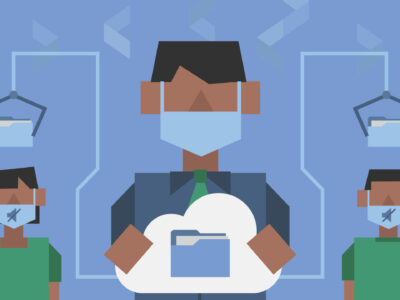EngageMedia is a nonprofit that promotes digital rights, open and secure technology, and social issue documentary. Combining video, technology, knowledge, and networks, we support Asia-Pacific and global changemakers advocating for human rights, democracy, and the environment. In collaboration with diverse networks and communities, we defend and advance digital rights.
We envision a world where human rights, democracy, and the environment are respected by Asia-Pacific businesses and governments — where civil society meaningfully participates in meeting social and environmental challenges.
Our Site: EngageMedia.org
Our Video Site: Cinemata.org
Video4Change Network: Video4change.org
Subscribe to our newsletter
Latest posts by EngageMedia
Reflections on youth-led movements against state repression in Bangladesh and Indonesia
Grassroots approaches not only ensure the continuity of the movement but could also strengthen solidarity and trust among protesters, deepening the connection to local communities, which is vital for sustained resistance.
Lessons from Indonesia's 2024 election: Social media, censorship, and youth vote
During the elections, generative AI content was used in the campaigns by many parties and there were a variety of attitudes towards its use.
The role of youth in championing digital literacy education in Timor-Leste
"Digital rights education is essential in Timor-Leste to empower individuals to protect their privacy, promote freedom of expression, and foster digital inclusion."
From silence to symbols: How Thais are employing language in new ways towards freedom of expression
"Thai netizens have turned to unique linguistic alternatives to continue freely expressing themselves online."
In the shadows of self-censorship: The impact of the Cyber Security Act on Bangladesh’s LGBTQ+ movement
Several sections of the newly enacted Cyber Security Act (CSA) restrict the advocacy and movement for LGBTQ+ rights, criminalising published contents highlighting injustices faced by the LGBTQ+ community in Bangladesh.
Cambodia: Problematic laws and restrictions on information are threatening digital rights
As internet use and digital technologies flourished in Cambodia, more people are relying on social media to access news and information and to exercise their rights to free expression.
Singapore under the pandemic: The normalisation of digital authoritarianism
"Surveillance has reinforced a culture of self-censorship and fear in Singapore which further mutes public criticism of the government."
Post-pandemic, lockdown on rights persists in the Philippines
The restrictions and repressive measures imposed during the pandemic have continued to have a chilling effect on the local population.
Challenges of independent filmmaking in Indonesia
Since 2019, Annisa Adjam, a director, producer, and writer from Indonesia, has independently produced short films ranging from experimental and virtual reality (VR) to documentaries, fiction, and animation.
Time for reflection on lock-ins, lockdowns, and shutdowns at the Digital Rights Asia-Pacific Assembly
EngageMedia Executive Director Phet Sayo invites allies to join in the collaborative sense-making process and reflect on the lessons and challenges ahead in navigating the digital rights landscape.
Six films on Asia-Pacific communities addressing the climate crisis
These films feature stories of communities fighting against the adverse impact of climate change and inspiring hope in addressing the climate crisis through their efforts and solidarity.
Thai political parties sign election code of conduct, pledge to uphold human and digital rights
"Political parties agreed that, regardless of who forms the government, it is crucial to work together to create stability, restore democracy, and promote economic development that leaves no one behind."
Ahead of elections, Thai political parties commit to upholding digital rights
"Ahead of the upcoming elections in Thailand, political parties committed to recognising and incorporating the protection of digital rights in their agenda."
Policing the pandemic: Australia’s technology response to COVID-19
Australian governments approached the use of digital technologies from an ideological perspective, heavily leaning on control and surveillance.
Towards digital authoritarianism in Nepal: Surveillance, data collection, and online repression
Nepal government’s COVID-19 response opened the door to various threats to human and digital rights. Nepal must decide on its own path if it envisions a democratic digital ecosystem.
Disruptive technologies, demagogic governance: Data (un)democracy in India during COVID-19
The COVID-19 pandemic not only resulted in a great loss of life in India, but also provided an impetus for authoritarian control.
Digital authoritarianism in Bangladesh: Weaponising a draconian law to silence dissent in the pandemic era
The COVID-19 pandemic provided the government with a pretext to censor free speech, harass critics, and effectively curb dissent – accelerating what has been an ongoing turn towards authoritarianism in Bangladesh.
Vietnam’s Zalo Connect app: Digital authoritarianism hidden in peer-to-peer aid platforms
The app connects users in need with private donors. It exemplifies a humanitarian trend that centres on extracting data from vulnerable communities as a precondition to receiving aid.
Indonesia's Covid tracker app PeduliLindungi: To care for and protect?
As PeduliLindungi and the government continue to fumble in its operations, one needs to ask: Is PeduliLindungi really caring for and protecting the Indonesian public?
How the economically marginalised navigate digital adoption in India amid the pandemic
COVID-19 drove the shift to digital services in India, but this has left informal workers struggling to access basic services and protect their personal data within an incomprehensible system.
In Sri Lanka, state-sponsored disinformation and suppression of dissent taint COVID-19 response
Amid the COVID-19 pandemic, the Sri Lankan government has used the digital space to further an authoritarian agenda, affecting the digital rights and freedoms of citizens.
























